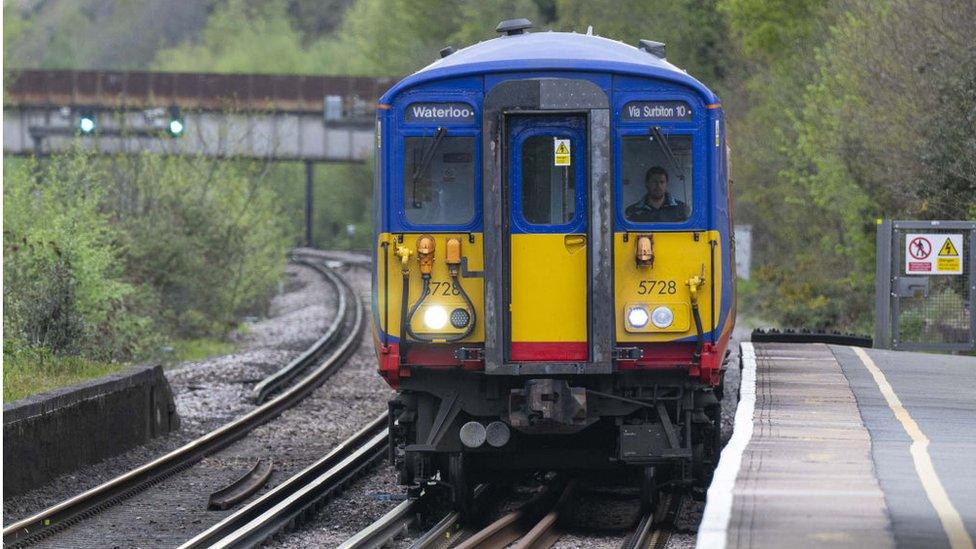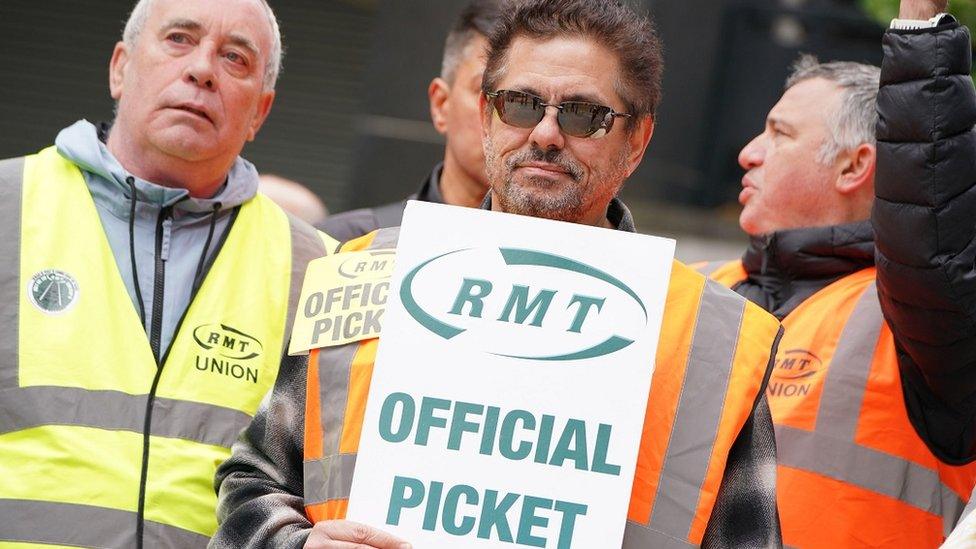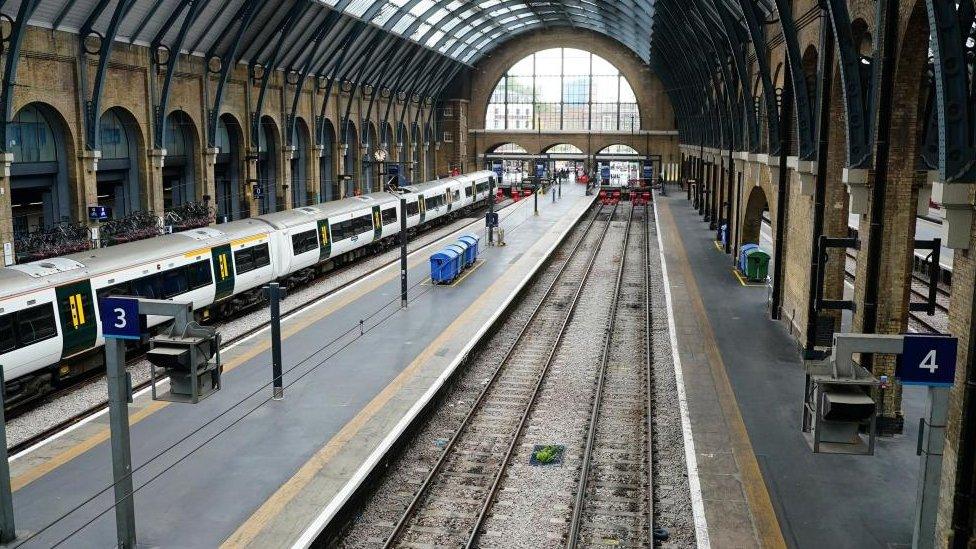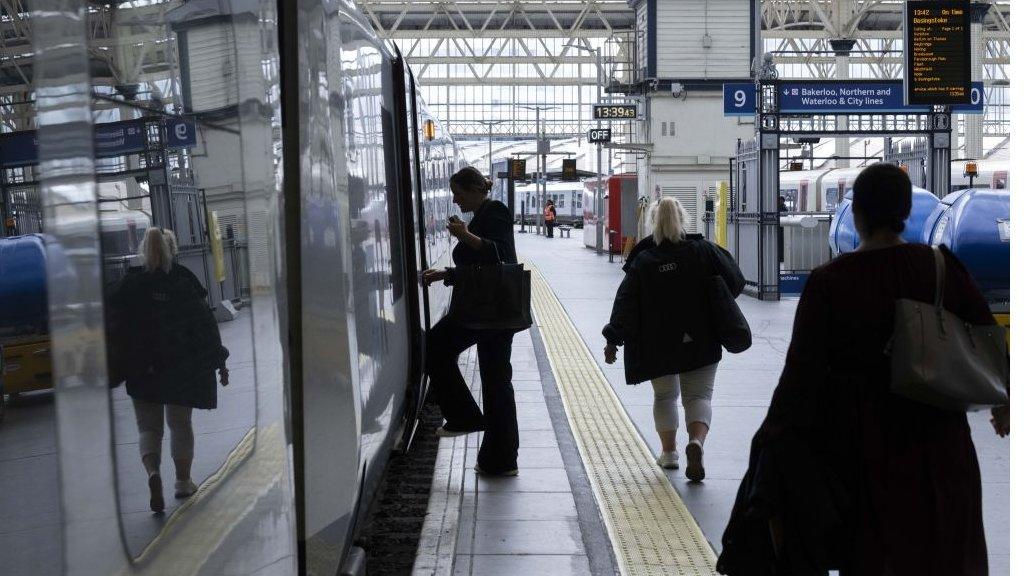More rail strikes to take place in July
- Published
- comments

Train travel is set to be disrupted once again as workers will go on strike for three days in July.
The strikes will take place on Thursday 20, Saturday 22 and Saturday 29 July, and could impact summer plans for many people.
The action is part of train workers ongoing dispute about pay and conditions, with members of the RMT union taking action at 14 rail companies.
The RMT said 20,000 of its members, including guards, train managers and station staff, would stop working.

The RMT said negotiations with rail firms and the government had stalled, but train companies said the action was "totally unnecessary" and urged the union to put the latest pay offer to its members.
On previous strike days there have been thousands of cancellations, with some lines not operating at all and where there have been services, routes have tended to start later and finish earlier than normal.
Passengers are being advised to check trains are running before travelling.
Northern Ireland is not affected by the strikes, while Scotland and Wales will only be impacted on cross-border services.
Why have railway workers been on strike?

There have been many attempts to end the strikes and reach a deal, but despite lots of negotiations union and rail operators have been unable to come to an agreement.
Unions have said any pay offer should reflect the rising cost of living but the rail industry is under pressure to save money, after the coronavirus pandemic left a hole in its finances.
Bosses say reforms need to be agreed to afford pay increases and modernise the railway.
The BBC understands that rail operators are willing to negotiate with the RMT, but want the union to put the latest pay offer to its members before taking further action.
- Published18 August 2022

- Published31 May 2023

